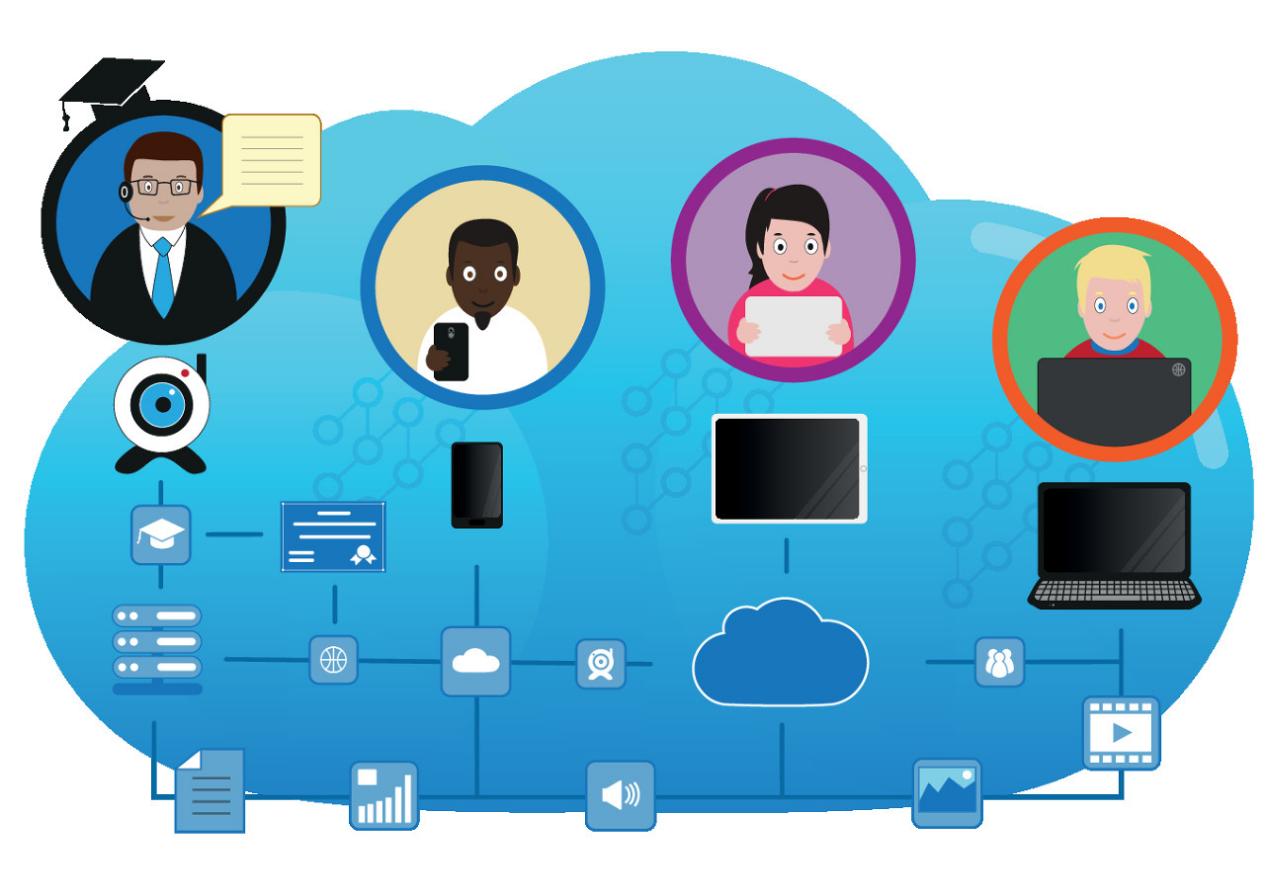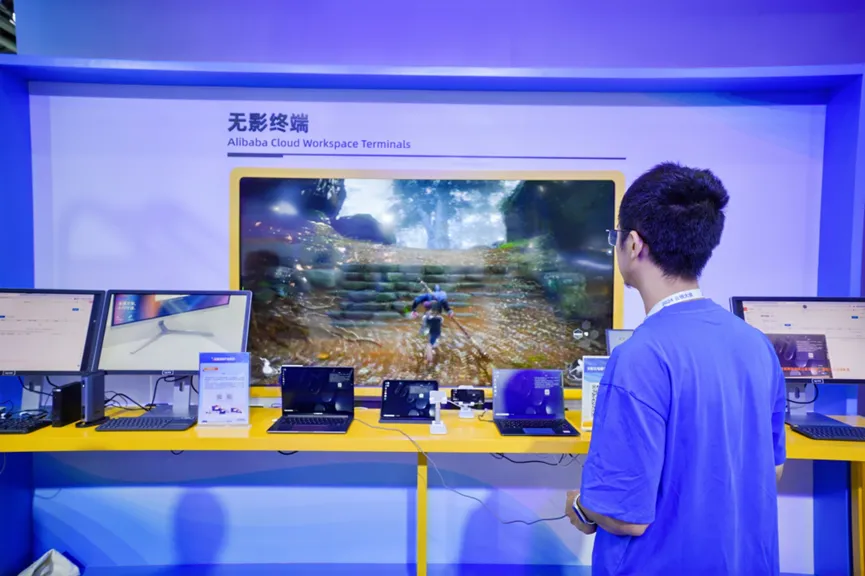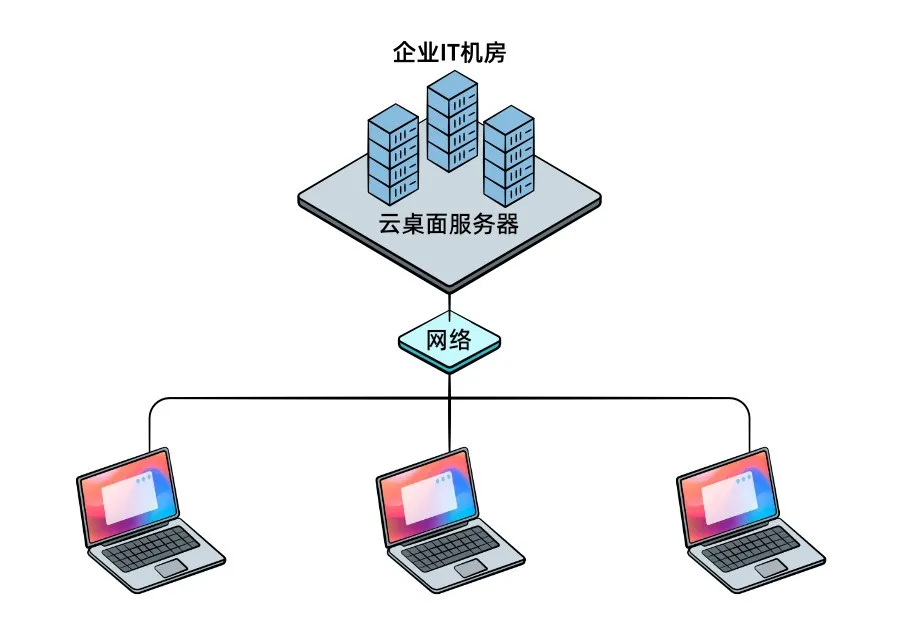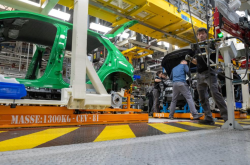Alibaba Cloud vigorously promotes cloud computers, undoubtedly with an "ulterior motive"
![]() 09/27 2024
09/27 2024
![]() 540
540
Invisible Cloud is mentioned by Alibaba Cloud at the same level as large models, because it can really sell computing power for money

When an old-fashioned thing is favored and heavily invested in by a major player, it will experience a second spring.
After failing to successfully initiate a new round of price wars with the strategy of offering the "lowest prices on the entire network" at the beginning of the year, Alibaba Cloud's actions in 2024 appear to be far less frequent than in previous years. Apart from steadily advancing its AI large model strategy, it has also gained more attention for its massive July outage and the leak of photos from Alibaba Cloud Drive.
However, this does not mean that Alibaba Cloud has slowed down. On the contrary, in addition to AI large models, Alibaba Cloud has also elevated cloud computers, a more traditional and practical application of computing power, to an unprecedented level.
At the end of August, Alibaba Cloud Intelligent Group's Invisible Business Unit was upgraded from a sub-product line under the original Elastic Compute Service (ECS) product line to a first-tier business unit of Alibaba Cloud, directly managed by Wu Yongming, CEO of Alibaba Group and Chairman of Taobao China Holding Limited and Alibaba Cloud.
Zhang Xiantao stated, "Early this year, after reviewing its product lines, Alibaba Cloud identified two strategic products: one is the AI large model, and the other is the Invisible Cloud Computer." In his view, "Over the next decade, terminal cloud computing will surely become a significant growth area. With technological advancements and the maturity of cloud computing technologies, this computing power revolution is bound to occur and is already looming on the horizon."
Earlier, rumors circulated that Wu Yongming had personally taken charge of the Invisible Cloud Business Unit and would reward the top salesperson with a Xiaomi SUV.

Image source: Internet
So, what can cloud computers, which are highly valued by Alibaba Cloud, do? How do they differ from cloud desktops, which have been around for over a decade and have been criticized for their shortcomings? Why does Alibaba Cloud consider cloud computers as another growth point parallel to AI large models? If they are truly promoted, what are the obstacles and future prospects?
01
Cloud computers cannot yet provide seamless 3A gaming experiences at all times
When discussing what cloud computers can do, I believe most C-end users would first think of software for work tasks such as WPS and Office, rather than gaming, which requires a certain level of device performance.
Recently, the most popular game has undoubtedly been the first domestic 3A game, "Black Myth: Wukong." However, many people cannot enjoy it due to their low-end PC configurations. This is where cloud computers come into play.
At the Invisible Cloud Computer exhibition area of the Cloud Town Conference, attendees could personally experience gaming on cloud computers. Whether it was character movement, jumping, or intense battle scenes, everything felt smooth and lag-free, with almost zero delay.

The official also stated that with Alibaba Cloud's Invisible Cloud Computer, even devices with low hardware configurations can run games without any issues. Even more impressive, it automatically adjusts the resolution, scaling ratio, and video mode based on the selected configuration and network conditions, ensuring a smooth and enjoyable gaming experience.
In addition, the Invisible Cloud Computer client offers a separate section for cloud gaming in addition to options for personal and family cloud computers. Users can configure and start playing "Black Myth: Wukong" instantly after purchasing it on Steam.

However, in actual testing, the delay was still relatively high due to network speed issues, making it challenging to achieve a seamless gaming experience for games like "Black Myth: Wukong." Nevertheless, for most online games, the gaming experience provided by Invisible Cloud was sufficient.
Beyond just office work, the ability to play 3A games and handle tasks requiring high computing power and load is one of the key differences between cloud computers and cloud desktops.
Cloud desktops can be understood as a type of office productivity tool, typically deployed within corporate intranets to address issues related to enterprise information security and efficient office operations. However, due to the limitations of the intranet and insufficient computing power within the local area network, cloud desktops can only be used within a relatively small internal scope and struggle to meet diverse user needs beyond office work.

Image source: ZTE Cloud Computer
Cloud computers, on the other hand, build upon the concept of cloud desktops by consolidating all hardware into a single location and connecting all devices through the vast internet network.
This allows the target audience to expand from enterprises to individuals, making it possible for desktops that were previously limited to PC use accessible from any mobile device. Whether it's a PC, tablet, smartphone, or set-top box, they can all be transformed into the PC configuration you need in an instant. With network support, you can even play 3A games on your smartwatch.
Simultaneously, the number of people sharing cloud resources has expanded from hundreds to millions or even tens of millions, leading to a corresponding rapid increase in elastic cloud resources. This enables users to tap into a larger pool of computing power resources, allowing a computer to shift from meeting basic office needs one moment to supporting high-compute tasks like professional rendering the next.
However, merely elevating Invisible Cloud to such a prominent position based on these factors would be a stretch.
In terms of competition, besides Invisible Cloud, various providers such as Sunlogin, ToDesk, Yiteng Cloud, operator clouds, and Tencent START cloud gaming can all offer similar gaming services, resulting in significant homogeneity. Furthermore, on the user side, convincing users accustomed to high-end PCs to switch to cloud computers poses a challenge.
Nevertheless, as mentioned in the introduction, when an old-fashioned product catches the eye of a major player and receives significant investment, it experiences a renaissance. Alibaba Cloud's formal push may propel cloud computers into a different future.
02
Cloud computers becoming a major trend will make selling computing power more profitable
While cloud computers alone may face numerous challenges, the combination of "cloud computers + Alibaba Cloud" can address most of these issues.
As a technology that requires computing power, technology, and customers, cloud computers pose significant challenges for operator clouds in terms of acquiring customers and technology. As a product targeted at C-end users, it's crucial to have a solid C-end user base and provide a usable experience.
Currently, operator clouds are still in the stage of "roughly" selling computing power. Directly connecting with C-end users would not only require significant expenses and the ability to acquire users, but any fluctuations in product stability and experience could lead to failure.
For third-party vendors like ToDesk and Yiteng Cloud, who have long been focused on the C-end market, acquiring new users also comes at a cost. Consider this: for someone unfamiliar with cloud computers, would it be more effective for them to try the service through Alibaba Cloud or these third-party vendors?
Moreover, as the user base grows, only sufficient computing power reserves can meet the overwhelming demand from C-end users. For example, Tencent's START cloud gaming limits the free single-session experience of "Black Myth: Wukong" to two hours, and even paying SVIP users may need to wait in line for seamless gameplay.
In this context, Alibaba Cloud plays a pivotal role in "growing big and strong" cloud computers.
For Alibaba Cloud, which has been fiercely competing in the cloud services market to the point of exhaustion and diminishing profits, elevating cloud computers, which focus on end-user computing and profitability, aligns with the group's interests.
Beyond technological leadership and market scope, from a purely financial perspective, as the largest cloud enterprise in China, selling computing power is Alibaba Cloud's bread and butter. However, who the computing power is sold to and in what form significantly impacts revenue.
For B-end customers, even slight price fluctuations can prompt them to switch providers, given the intense competition among cloud service providers. However, for C-end users, who view cloud computers as a convenient "cyber cafe," even a modest price increase is unlikely to deter them, making them valuable customers for Alibaba Cloud.
Moreover, as the number of smart devices such as computers, smartphones, tablets, smartwatches, connected cars, smart TVs, smart fridges, and AI glasses increases, so does the demand for high-quality computing power. This represents a lucrative and abundant blue ocean market that, if captured as Alibaba Cloud anticipates, could significantly enhance its profitability and solidify its brand image.
Nonetheless, the path to a brighter future is often paved with challenges, and the development of cloud computers is no exception.
For gamers, network connectivity often limits the usability of cloud computers. High-performance gaming experiences demand low latency, which can be compromised by unstable or slow internet connections, leading to delays and lag.
For individual users accustomed to local computing, concerns about data security and privacy in the cloud may arise, necessitating time to demonstrate the safety of cloud computers. Additionally, users must be gradually convinced that storing computing power in the cloud rather than carrying heavy gaming laptops during travel is a viable option.
Lastly, as the user base grows, maintaining service stability, reliability, and security to avoid frequent security issues and major incidents at Alibaba Cloud becomes paramount. A single major incident could erode C-end users' trust in cloud computers entirely.
In summary, for Alibaba Cloud, cloud computers offer an opportunity to increase the value of its computing power, provided it can effectively nurture the entire cloud computer industry. However, achieving this won't happen overnight.
Reference materials:
1. "Unexpectedly, 'Black Myth: Wukong' Has Sparked a Terminal Cloud Computing Storm," LeiPhone
2. "Alibaba Cloud's 'Invisible' Business Unit Upgraded to a First-Tier Department, Directly Managed by CEO Wu Yongming," Sanyan Technology
3. "Understand Cloud Computers in One Minute," ZTE Cloud Computer
4. "Old PCs Struggle with 'Black Myth: Wukong,' but a $169 Cloud Computer Can Help You Beat It," OneZero






